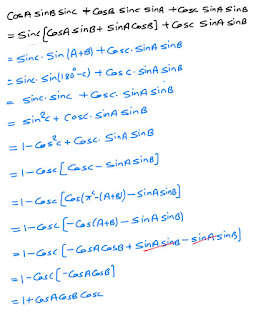Quantum computers are different from conventional computers, in that they use electrons and atoms to store information ('qubit') rather than chips. As a result, they can handle billions of pieces of information simultaneously, and so avoid the inevitable bottleneck in conventional computers caused by their limitation to sequentially process one piece of information. Despite the simplicity of the idea, it is actually extremely difficult to build a quantum computer. This is because electrons and atoms can be easily disturbed by their environment, causing the breakdown of information stored in the quantum computer and thus errors in computation.
So, it may be a while before you have a quantum computer on your desk. But physicists around the world are racing to get there, and have already built a 7-qubit-quantum computer, which demonstrates that the physics indeed works.
By mahesh saagr khanal for scientific nepal






0 Comments